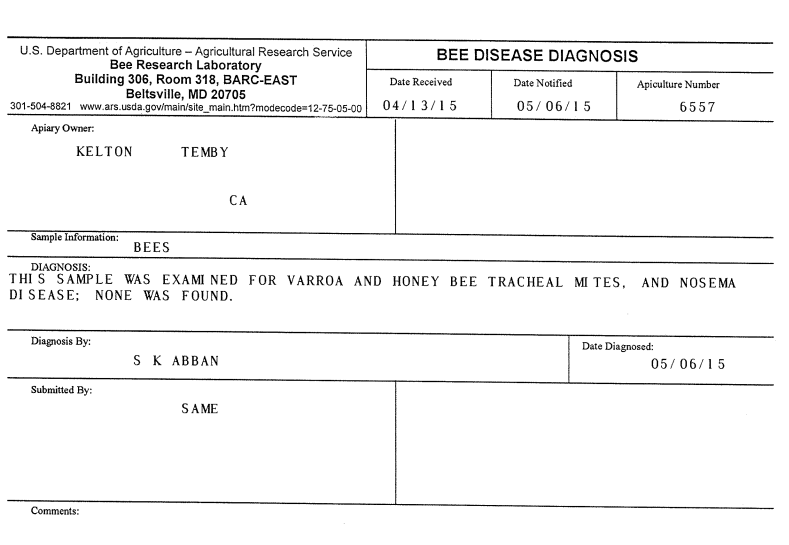After discovering a large number of dead bees just down the road from the office, I collected a sample, preserved them and sent them in for analysis.
It ended up just costing just $2.50 to mail off the sample to the laboratory, really great that this service is available.
My understanding from the website and SBBA’s Paul Cronshaw is that the Bee Disease Diagnosis group at the Bee Research Laboratory isn’t directly testing for pesticides, but instead is testing for ‘natural causes’ and all the nasty Bee diseases.
Once the bees have been analysed for those, we could say we’ve ruled out the natural causes, and can turn attention to pesticides etc.
I received back the results from the Bee Research Lab tests.
As we expected, they completely confirmed that these bees did not die from any of the usual biological stressors (negative results for mites, nosema). These bees were perfectly healthy, and died en masse in this one localized spot.
Apparently there is another lab which will test directly for pesticides, but unfortunately there’s a significant fee involved.
I’ll share the results with the businesses which are located in the area, and let them know the results point toward pesticides. Perhaps it’ll raise some awareness of the impact some ‘garden treatments’ have on bees, and that the problems and solutions really do start local.
Despite this result, our local county has a policy of broad pesticide usage.
